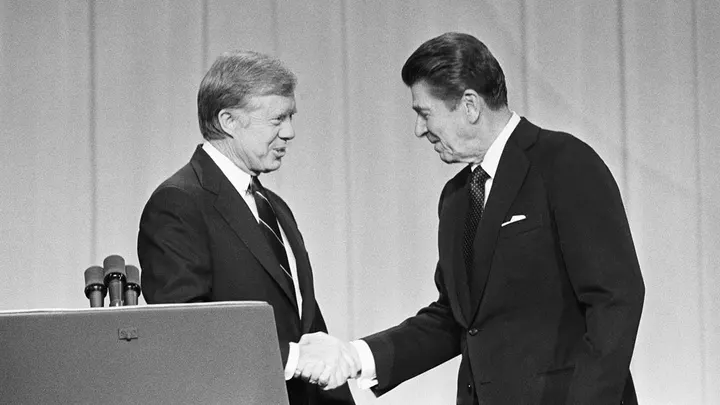Recent polling from Emerson College paints a surprising picture in New York: President Biden holds only a seven-point lead over former President Trump, with Biden’s approval ratings below 50 percent. Coupled with the independent candidacy of Robert F. Kennedy Jr., the state appears ripe for Trump’s electoral picking come fall.
Reagan’s triumphs in New York in 1980 and 1984 offer a strategic roadmap for Trump’s aspirations. Despite shifts in demographics, Reagan’s strategy reverberates. His bid to expand the electoral map sought a broad mandate from the American people, a goal echoing Trump’s ambitions.
The presence of third-party candidate John Anderson in 1980, perceived as a liberal Republican, proved pivotal. Anderson’s candidacy drew votes from both Carter and Reagan, particularly in New York, amplifying the psychological impact on the Carter campaign.
Trump, like Reagan, seeks to make a profound statement with this election. The resounding call of “Make America Great Again” resonates anew, bolstered by a surge of support post the New York trial verdict. Even disillusioned Democrats are shifting their loyalty to Trump, underscoring the desire for change.
Reagan’s broad appeal, transcending party lines, finds resonance in Trump’s outreach efforts. Trump’s unconventional approach mirrors Reagan’s, emphasizing inclusivity and a staunch anti-communist stance that resonates with diverse demographics.

The economic and global challenges of Carter’s presidency parallel the present, fostering an environment ripe for a transformative election. Reagan’s proactive campaigning throughout New York, including the South Bronx, highlighted the failures of the incumbent administration and struck a chord with moderate, wavering voters.
Reagan’s compassion and resilience, even amid adversity, left a lasting impression. Trump, similarly, faces challenges but remains steadfast in his commitment to restoring American greatness.
Historically, transformative elections have reshaped the political landscape, fueled by the people’s discontent with entrenched elites. Reagan’s victory in 1980 stands as a testament to grassroots movements and the rejection of political establishments.
In the face of corruption and mismanagement, Reagan’s triumph offers a beacon of hope for Trump’s campaign in New York. Just as Reagan defied the odds, Trump aims to secure victory against a backdrop of a nation yearning for change.
As the campaign unfolds, the echoes of Reagan’s historic victories remind us that lightning may indeed strike again, illuminating a new chapter in American history.